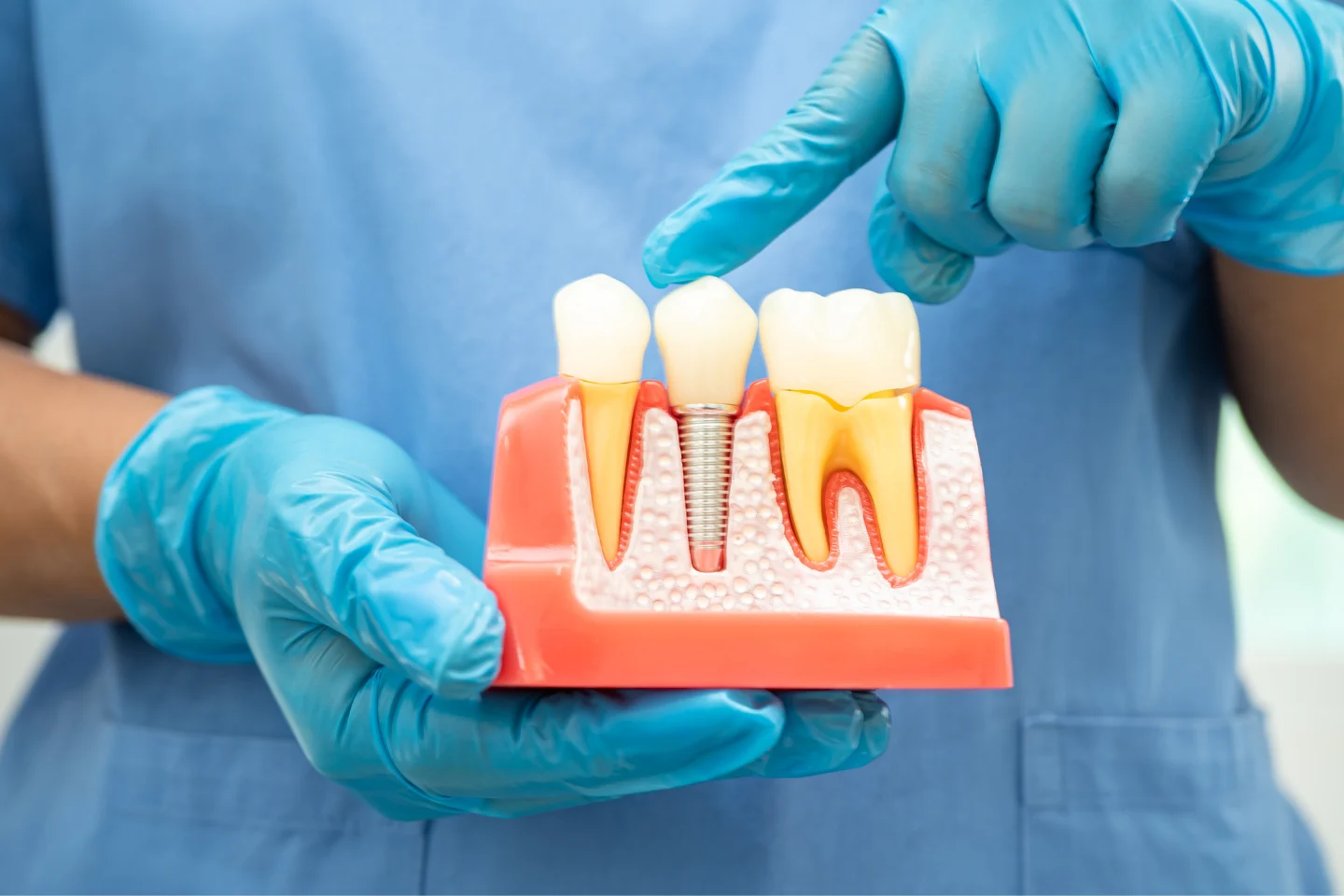Tooth loss is more than just a cosmetic issue—it’s a structural one. When a tooth is missing, the visible gap is just the beginning of a deeper problem: jawbone loss. This silent consequence of tooth loss can have a significant impact on your long-term oral health, facial appearance, and ability to eat and speak comfortably.
While both dentures and dental implants are common solutions for missing teeth, only one of them actually prevents bone deterioration. At BOOM Smiles in Hoboken, we help patients understand why dental implants are the only tooth replacement option that actively preserves your jawbone—and why that matters more than you might think.
Let’s take a closer look at how bone loss happens and how implants offer a biological advantage over traditional dentures.
Why Bone Loss Happens After Tooth Loss
Your jawbone isn’t just a passive structure—it’s a living tissue that responds to activity. In a healthy mouth, the roots of your teeth stimulate the jawbone every time you chew, speak, or bite. This stimulation sends a signal to your body to maintain bone density in that area.
When a tooth is lost, that root is no longer present to provide stimulation. As a result, the jawbone underneath begins to shrink. This is known as bone resorption, and it can begin within just a few months after losing a tooth.
Over time, this process can lead to:
- Sunken facial features (especially around the mouth and cheeks)
- Shifting of adjacent teeth
- Poor fit of dentures or other restorations
- Weakened jawbone that complicates future dental procedures
Without intervention, bone loss is inevitable—but it’s not irreversible, especially if caught early.
How Dental Implants Preserve Jawbone Health
Dental implants are small titanium posts that are surgically placed into your jawbone to act as artificial tooth roots. Once placed, they fuse with the bone through a process called osseointegration.
Here’s why they work so well at preventing bone loss:
- Mimicking Natural Tooth Roots: Implants transfer pressure from chewing and biting directly into the bone, just like natural roots. This stimulates bone remodeling and encourages your body to maintain the bone density around the implant site.
- Promoting Stability and Bone Growth: Once fused, implants become a permanent part of your jaw. The presence of the implant not only prevents further resorption but can also promote new bone growth around the site, especially when used in conjunction with bone grafting in Hoboken.
- Preventing Facial Collapse: Because implants preserve the height and width of the jawbone, they help maintain your natural facial contours. This prevents the sunken appearance often seen in long-time denture wearers.
Longevity and Structural Integrity: Dental implants are incredibly durable. With proper care, they can last decades—or even a lifetime—while continuing to support your bone and overall oral health. Unlike bridges or dentures, they don’t need support from adjacent teeth or rely on gum tissue for retention. To learn more, read our comprehensive guide to the dental implant process.


